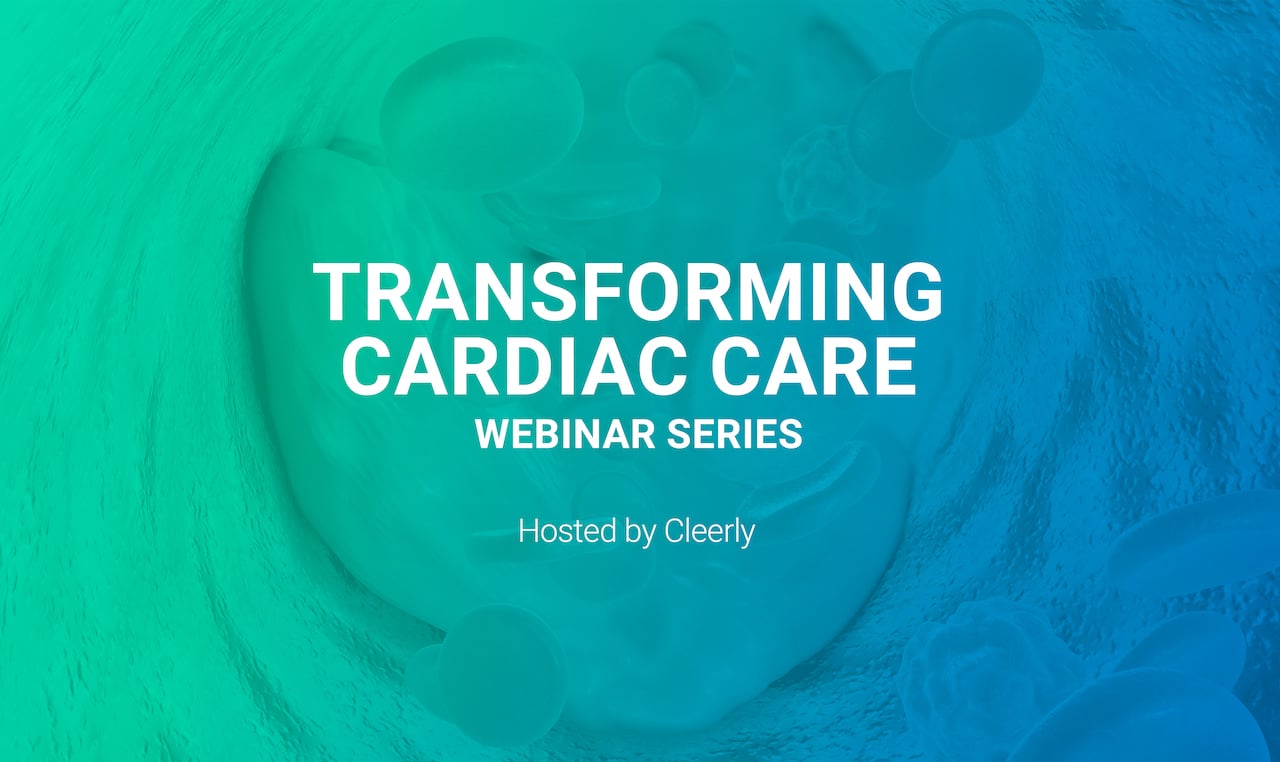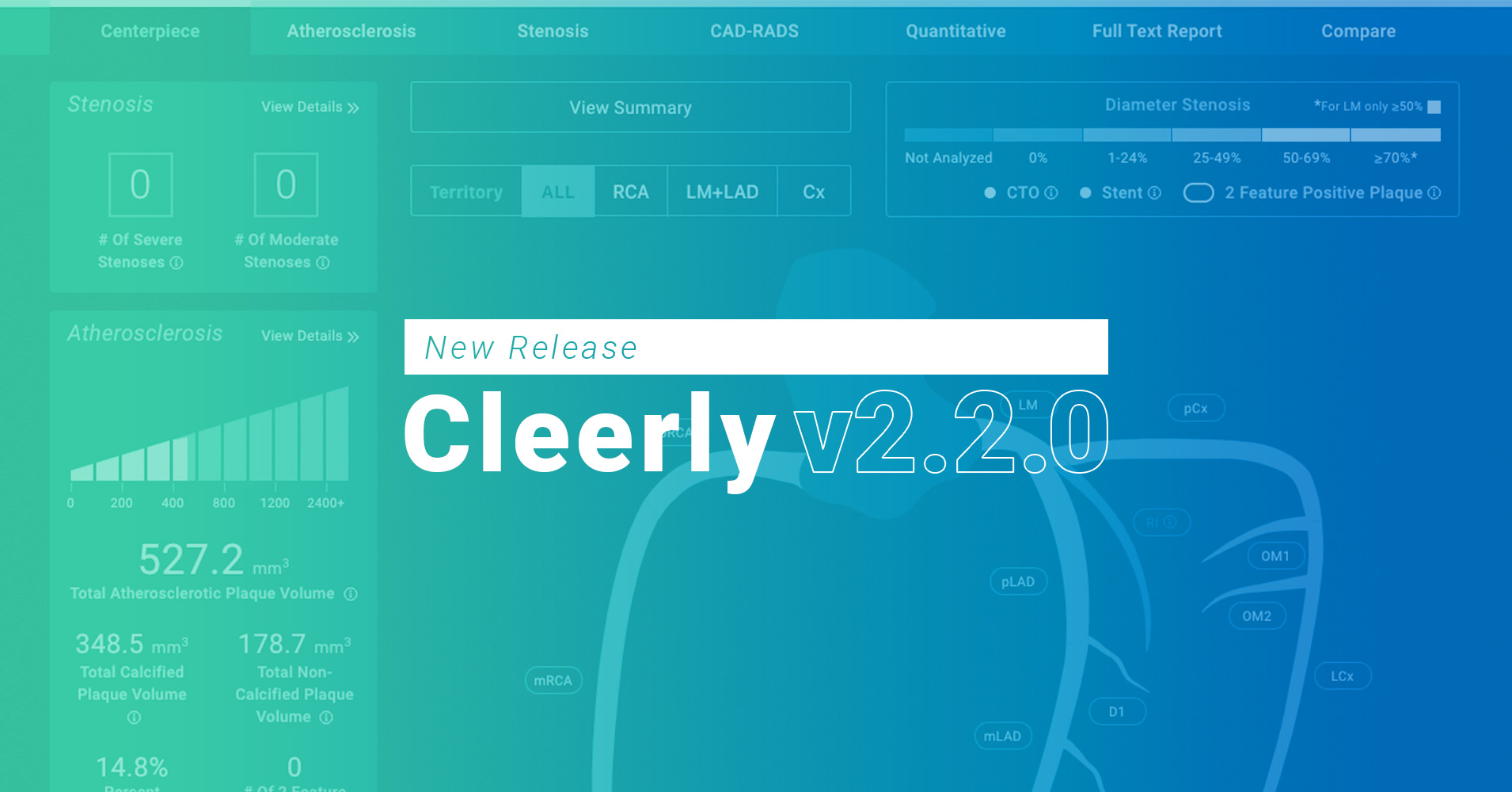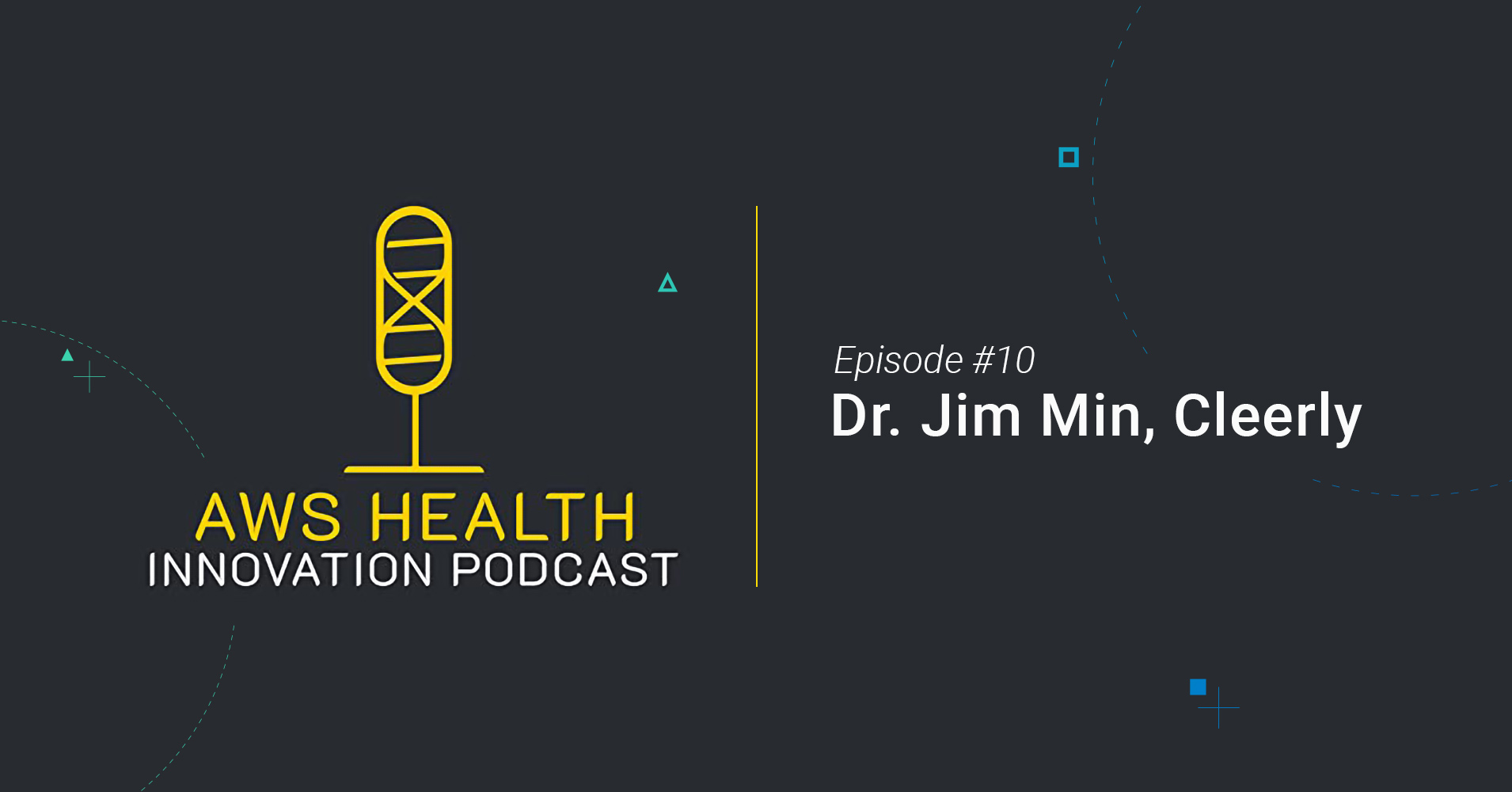The Recipe to a Healthy Heart:Your Guide to Preventing Heart Disease
Sure, the taste of food is important, but do you know how your diet impacts your heart? Many foods contain hidden ingredients that negatively impact...

There's a little-known fact in cardiology: Most of the care that's provided doesn't prevent heart attacks.
Consider the following sobering statistics, all backed by clinical research:
For too long, cardiovascular care has focused primarily on symptoms while failing to address the root cause of heart disease. Our Transforming Cardiac Care webinar series offers candid conversations with the world's leading experts on using CCTA to identify at-risk patients and provide the most effective preventive and precision heart care.
For years – decades, even – research paper after research paper has demonstrated the utility of product or service X to find Y number of patients who have experienced Z symptoms.
The flaw here is the focus on the symptoms at a population level. Hypertension, high cholesterol, or diabetes are risk factors but not causes of heart disease. This false dichotomy sends cardiovascular care in the wrong direction. It leads millions of "high-risk" patients to receive care they don't need while "low-risk" patients go unnoticed and untreated, only to present at the emergency department with an unexpected heart attack.
The root cause of a heart attack is atherosclerosis or the buildup of arterial plaque. That can only be determined at an individual level, using a combination of coronary computed tomography angiography (CCTA) to capture images of arterial plaque and advanced analytics to determine the type, extent, and severity of plaque and inform the best course of treatment.
Cardiology hasn't focused on personalized, preventive, precision care. It's time to change that.
To talk about how the industry can make this change – and how it won't disrupt existing cardiology business models in the hospital or independent practice – Cleerly is hosting a Transforming Cardiac Care webinar series with several of the world's leading experts on leveraging CCTA to proactively identify the right patients and provide them with the most effective therapies to slow the progression of heart disease and prevent a heart attack from happening.
Along with our guest speaker, each webinar will feature Cleerly Chief Executive Officer James K. Min, M.D., and Cleerly Chief Medical Officer James Earls, M.D. Over the course of the webinar series, we'll take a deep dive into those sobering statistics and answer a key question about how we as an industry can change the paradigm for cardiovascular care.
Here's a quick look at the first installments of the Transforming Cardiac Care webinar series.
Upcoming Webinar
Andrew Freeman, MD, FACC, is Director of Cardiovascular Prevention and Wellness at National Jewish Health. He uses advanced cardiovascular diagnostics and lifestyle medicine in his approach to wellness and disease prevention.
In the second webinar of the Transforming Cardiac Care series, Dr. Freeman will discuss the industry's first novel, four-tiered atherosclerotic plaque staging system. He'll explain how plaque staging can support more precise treatment based on an individual's atherosclerotic phenotype.
Staging Atherosclerosis: Understanding Plaque Burden for Patient Evaluation and Treatment will take place May 25 at 2 p.m. Eastern time. Register here.
Past Webinar
Daniele Andreini, M.D. is an associate professor of cardiovascular disease at Milan's Centro Cardiologico Monzino. He is involved in nearly 20 international studies involving CCTA analysis. One such study, INTESTRAT-CAD, explores the possibility of predicting whether a patient with atherosclerosis will develop an acute myocardial infarction based on the results of a CT scan and biomarkers in the blood.
In the first webinar of the Transforming Cardiac Care series, Dr. Andreini explains why traditional methods of evaluating heart disease aren't working and why atherosclerosis is the strongest predictor of future heart attack risk. He discusses how CCTA can be used to track the way that plaque changes over time – a critical factor in determining whether medical therapies or lifestyle interventions will succeed in preventing a future heart attack.
Stay tuned for these future webinar dates, and signup for our upcoming webinar, "Staging Atherosclerosis: Understanding Plaque Burden for Patient Evaluation and Treatment" below.
At Cleerly, we are transforming heart disease and creating a new standard of precision heart care. Join our webinar series for conversations on a paradigm shirt in heart disease evaluation and treatment.
Join Our Transforming Cardiac Care Series
SIGN UP TODAY

Sure, the taste of food is important, but do you know how your diet impacts your heart? Many foods contain hidden ingredients that negatively impact...

As we reach the end of 2023 and yet another remarkable year at Cleerly, it’s a great opportunity to reflect on all we’ve accomplished and begin...

Cleerly has had a busy few months – attending conferences, panel sessions, and winning awards as we all work together to achieve our mission of a...

As Cleerly makes its way into the clinical workflow of health systems and providers across the US, we are learning valuable information about how to...

Cleerly CEO James Min, M.D., is a guest on the latest episode of the AWS Health Innovation Podcast hosted by Joe Shonkwiler, M.D.

Findings from Cleerly's groundbreaking echo the recent American College of Cardiology guidelines on the use of CCTA for non-invasive heart disease...